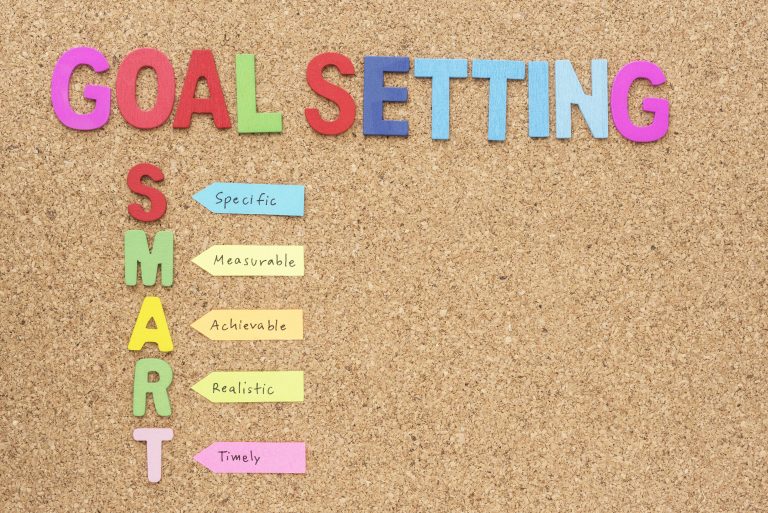Setting achievable goals is an important step towards the success of any business. Here are some steps to help you set achievable goals:
1. Define your objectives
Start by defining your business objectives. What do you want to achieve? What is your long-term vision for your business? Your goals should align with your overall objectives.
2. Break down your objectives
Once you have identified your objectives, break them down into smaller, achievable goals. This will help you to focus on specific tasks that need to be accomplished in order to achieve your objectives.

3. Make your goals SMART
SMART stands for Specific, Measurable, Achievable, Relevant, and Time-bound. Each goal you set should meet these criteria. A specific goal is one that is well-defined and has clear expectations. A measurable goal is one that can be quantified. An achievable goal is one that is realistic and attainable. A relevant goal is one that is aligned with your business objectives. A time-bound goal is one that has a deadline.
4. Prioritize your goals

Determine which goals are most important and prioritize them accordingly. This will help you to focus your efforts and resources on the most important goals.
5. Develop an action plan
Once you have identified your goals, develop an action plan that outlines the specific steps you will take to achieve each goal. This plan should include timelines, deadlines, and specific actions that need to be taken.
6. Monitor your progress
Regularly monitor your progress towards achieving your goals. This will help you to identify any obstacles or challenges that need to be addressed and adjust your plan accordingly.

7. Be realistic
When setting goals, make sure they are realistic and achievable within the given timeframe. Setting unrealistic goals can lead to frustration and a lack of motivation.
8. Involve your team
Involve your team in the goal-setting process. This will help to ensure that everyone is aligned with the business objectives and is committed to achieving the goals.
9. Celebrate successes
Celebrate when you achieve your goals. This will help to keep your team motivated and engaged, and will also help to reinforce the importance of goal-setting in your business.
10. Review and revise
Regularly review and revise your goals as needed. This will help you to stay on track and make any necessary adjustments to your plan.
11. Communicate your goals
Communicate your goals to your team and stakeholders. This will help to ensure everyone is on the same page and working towards a common goal.
12. Stay flexible
Be prepared to adapt your goals and action plan as needed. The business landscape is constantly changing, and being flexible will help you to stay responsive to new opportunities and challenges.

13. Focus on what you can control
When setting goals, focus on the aspects of your business that you can control. This will help you to set goals that are realistic and attainable.
14. Use data to inform your goals
Use data and analytics to inform your goal-setting process. This will help you to set goals that are based on objective measures of success, rather than subjective opinions or assumptions.
15. Be specific
When setting goals, be as specific as possible. This will help you to identify the specific actions that need to be taken to achieve the goal and will help you to track progress towards the goal.
16. Break down large goals into smaller ones
If you have a large goal that seems overwhelming, break it down into smaller, more manageable goals. This will help you to focus on specific tasks and will make the overall goal feel more achievable.
17. Make your goals challenging but attainable
When setting goals, aim for a balance between challenging and attainable. Setting goals that are too easy may not provide enough motivation, while setting goals that are too difficult may be demotivating.
18. Make goal-setting a regular practice
Make goal-setting a regular practice in your business. Review your progress towards your goals on a regular basis and adjust your plan as needed.
19. Get feedback from stakeholders
Get feedback from stakeholders, including customers, employees, and investors, when setting goals. This will help to ensure that your goals are aligned with their needs and expectations.

20. Stay focused
Once you have set your goals, stay focused on achieving them. Avoid getting distracted by other opportunities or challenges that may arise.
Join the NoLimits Business Community
Are you a business owner looking to take your business to the next level? Join our innovative community of like-minded professionals and gain access to a wealth of valuable resources, including a community portal to chat with other business owners, ebooks, business development software, and growth events that will transform the way you do business. Best of all, these resources are completely free and will be available to you forever.
But the benefits of joining our NoLimits business community don’t stop there. By becoming part of our community, you’ll have the opportunity to connect with other business owners, share insights and ideas, and build valuable relationships that will help your business thrive. Don’t miss out on this amazing opportunity to supercharge your business and join us today!
21. Be adaptable
Be open to adapting your goals as circumstances change. Market conditions, customer needs, and technological advancements may require you to adjust your goals to stay competitive.
22. Make your goals visible
Display your goals in a visible place where your team can see them regularly. This will keep your team focused on achieving the goals and will help to reinforce their importance.
23. Break down goals by department
Break down goals by department or team to ensure that everyone has clear goals that are aligned with the overall business objectives.
24. Provide resources and support
Provide the resources and support necessary to achieve the goals. This may include additional staffing, training, or funding.
25. Celebrate milestones
Celebrate milestones along the way to achieving your goals. This will keep your team motivated and engaged and will help to reinforce the importance of the goals.

26. Use a variety of metrics
Use a variety of metrics to measure progress towards your goals. This will give you a more comprehensive understanding of how well you are achieving your goals and will help you to identify areas for improvement.
27. Involve external stakeholders
Involve external stakeholders, such as customers, suppliers, and partners, in the goal-setting process. This will help to ensure that your goals are aligned with their needs and expectations.
28. Provide feedback and recognition
Provide feedback and recognition to your team as they work towards achieving the goals. This will help to keep them motivated and engaged and will help to reinforce the importance of the goals.
In summary, setting achievable goals is a crucial step in growing and succeeding in your business. By following these tips and best practices, you can set goals that are specific, measurable, achievable, relevant, and time-bound, prioritize them, develop an action plan, involve your team, celebrate successes, and stay flexible.
By Gary Hales
Join the NoLimits Business Community
Are you a business owner looking to take your business to the next level? Join our innovative community of like-minded professionals and gain access to a wealth of valuable resources, including a community portal to chat with other business owners, ebooks, business development software, and growth events that will transform the way you do business. Best of all, these resources are completely free and will be available to you forever.
But the benefits of joining our NoLimits business community don’t stop there. By becoming part of our community, you’ll have the opportunity to connect with other business owners, share insights and ideas, and build valuable relationships that will help your business thrive. Don’t miss out on this amazing opportunity to supercharge your business and join us today!

